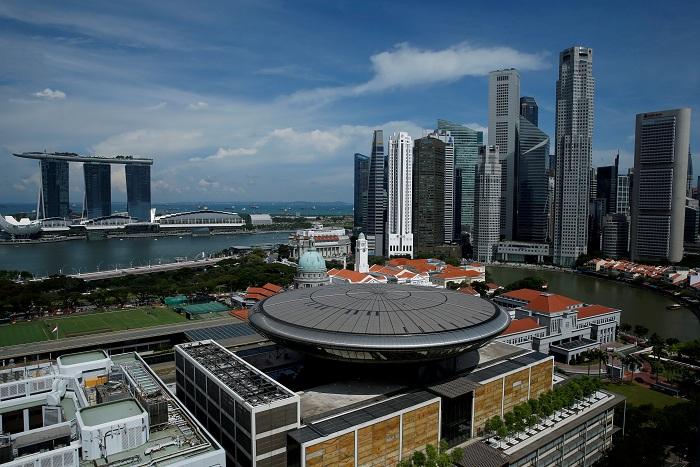
Inquiries for marine fuel supplies in the United Arab Emirates' (UAE) Fujairah oil hub have spiked as shippers try to avoid loading tainted fuel oil that has clogged and damaged ship engines in Singapore recently, three trade sources said.
Tainted marine fuel has been found in Singapore, the world's largest ship refueling hub, following reports of more than 100 vessels that loaded similarly contaminated fuel in the U.S. Gulf Coast, Panama and the Dutch Antilles, according to sources and an alert published by a marine fuel surveying company.
"Last week we had 7-8 inquiries (on average per day) but from Thursday to yesterday we've seen more than 17-18 (inquiries) per day," said a Dubai-based bunker fuel trader with a global bunker fuel supplier.
The trader declined to be identified as he is unauthorized to speak to the media.
According to the trader, his company's Singapore offices, along with other bunker fuel suppliers in the city-state, have recently faced quality claims from their customers that loaded contaminated fuel in Singapore.
"In Singapore it's a contamination issue that makes the fuel like sludge so it clogs all the purifiers and causes big damage to the filters of the engine," the Dubai trader said.
Singapore-based marine fuel surveyor and consulting firm Maritec Pte Ltd last week warned clients that six samples of ship fuel sold in Singapore had "resulted in severe sludging at centrifuges, clogged pipelines, overwhelmed fuel filters".
Despite a sharp decline in marine fuel sales over the past year following the Qatari diplomatic crisis in June 2017, Fujairah is still among a top global bunkering hubs.
Marine fuel sales, also known as bunkers, in Fujairah have fallen to an average of about 600,000-700,000 tonnes per month in 2018, compared to a monthly average of 1 million tonnes in the first half of 2017, according to trade sources.
Singapore, the top global bunkering hub, sold more than 4.2 million tonnes of ship fuels per month in 2017.








